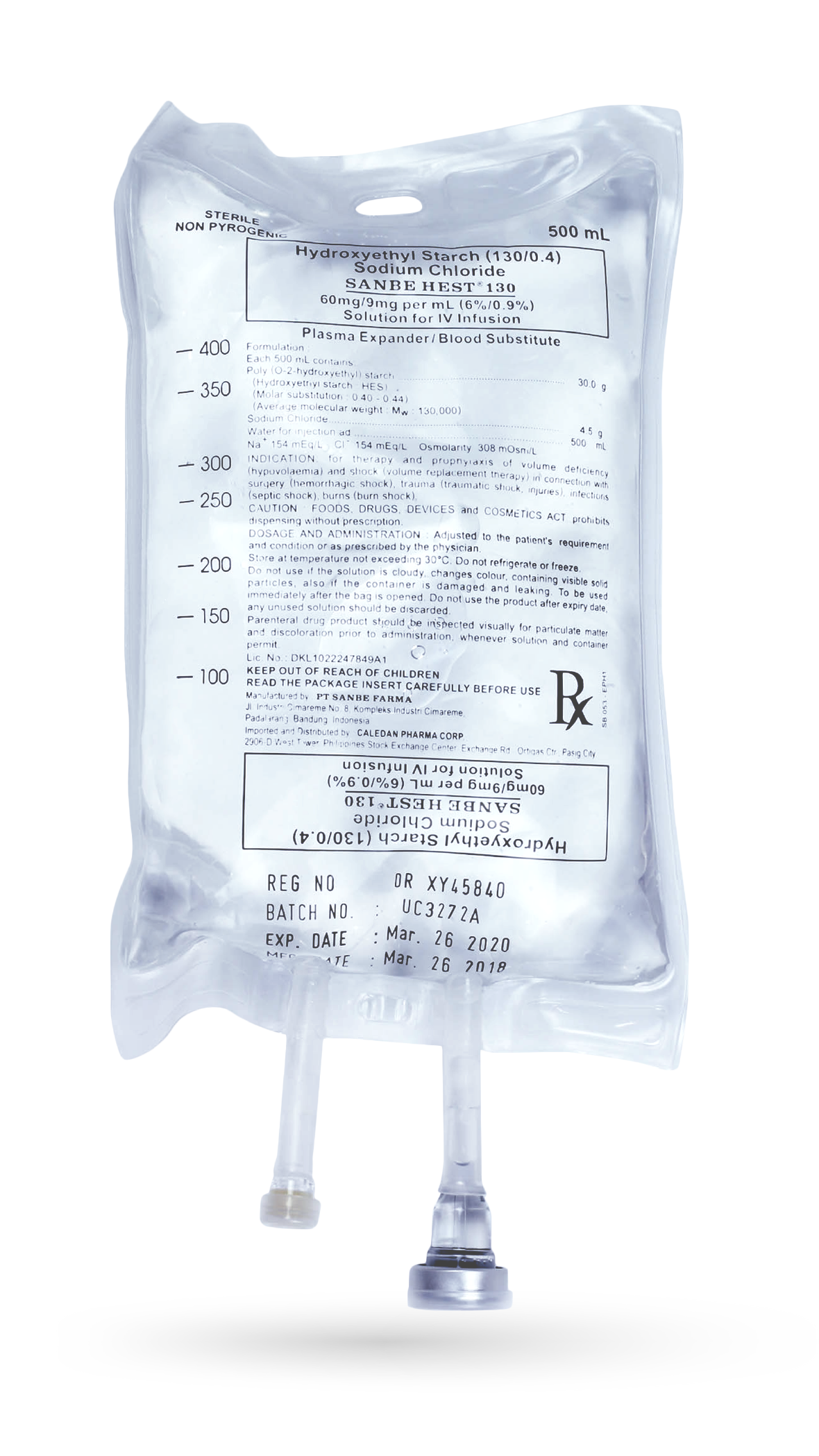
Contents: Per mL of Sanbe Hest 130 (6%/0.9%) Hydroxyethyl starch (HES 130/0.4) 60 mg, NaCl 9 mg. Per mL of Sanbe Hest 200 (6%/0.9%) Hydroxyethyl starch (HES 200/0.5) 60 mg, NaCl 9 mg
Indication/Uses: Therapy & prophylaxis of hypovolemia. Sanbe Hest 130 Therapy & prophylaxis of acute normovolemic hemodilution technique. Sanbe Hest 200 Therapy & prophylaxis of shock in connection w/ surgery (hemorrhagic shock), trauma (traumatic shock, injuries), infections (septic shock), burns (burn shock).
Dosage/Direction for Use: IV infusion Individualized dosage. Sanbe Hest 130 Initially 10-20 mL by slow infusion. Max: 50 mL/kg/day. Sanbe Hest 200 Therapy & prophylaxis of vol deficiency & shock (vol substitution therapy) Up to 20 mL/kg/day. Normally 500-1000 mL/day. Hemorrhagic shock Up to 20 mL/kg/hr. Septic & burn shock Continuous infusion: Initially 10-20 mL by slow infusion. Hemodilution therapy 500 mL/day (medium dose) or 2 x 500 mL (high dose). Max: 50 mL/kg/day. May be administered repetitively over several days according to the patient's needs.
Special Precaution: Hypersensitivity & anaphylactoid reactions (eg, mild flu-like symptoms, bradycardia, tachycardia, bronchospasm, non-cardiac pulmonary edema). Discontinue use in case of hypersensitivity; at the 1st sign of renal injury & coagulopathy. Avoid use in patients w/ preexisting renal dysfunction. Monitor renal function in hospitalized patients for at least 90 days; coagulation status of patients undergoing open heart surgery in association w/ cardio-pulmonary bypass; fluid balance, serum electrolyte conc, kidney function, acid-base balance & coagulation parameters during prolonged parenteral therapy or whenever condition warrants such evaluation; liver function. Avoid fluid overload. Patients w/ cardiac or renal dysfunction. Regularly assess fluid status & rate of infusion during treatment, especially in patients w/ cardiac insufficiency or severe kidney dysfunction. May interfere w/ diagnosis of pancreatitis. May decrease levels of coagulation factors, other plasma proteins & hematocrit at high doses.
Adverse Reactions: Pruritus; increased serum amylase, decreased hematocrit & plasma proteins.

